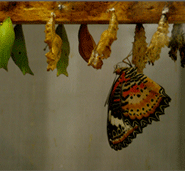our body is history.
inked with lines of joy, orchestrated, a symphony entirely our own. it bears the scars of our defeats. our infinite failures. carved in stone.
our body is sacred. and profane.
it is wondrous in its workings, balanced always precariously between life and death.
a breath away.
it surprises us when it fails to heal, to recover, to regain.
our body is a reservoir.
of secret longings. of breathless lust, and unabashed desire.
it is a dark corner we retreat into, a closet within a closet.
our body is both.
male. female. each in love with the other.
with themselves. wrestling against the frames.
it is a weapon.
our body is a site.
of intrepid exploration. caves, hollows, lakes, forests, waiting to be discovered.
our body is a vast hunger.
painted on a canvas. fleshy tones that gather light and shadow. that cradle filth and fury. painted on a canvas, our body becomes the other, lover, friend, foe. abir karmakar’s nudes are candid self-portraits, reveling, craving, impassioned. “I Love Therefore I am” is a series of eleven portraits of a man, him, licking his soul. the sole of his foot, his armpit, his nipple, his elbow, his palm. he sometimes tries to swallow himself whole. the portraits are close cropped, without a background, with no sense of geographical space or time. it is self love at its most consumptive. turning upon itself. engrossed with the feel of papery skin, of the tongue’s wetness. karmakar’s figure is curled like a fetus, fitted within the frame. unlike most of his other works – where the nude stares out at the viewer, provocative, alluring, seductive – this one keeps his eyes fixed on himself, unaware of, indifferent to, an audience. the universe shrinks to a square of arms, legs, head and torso.
karmakar’s work echoes that of the Old Masters: his oil paintings are rich, earthy, ethereal portraits of contemporary souls caught, even strangled, by gender constraints, within society’s scathing gaze. his figures, male nudes, are closeted within hotel rooms and soulless domestic spaces. he affords us no glimpse of the outside world. it is claustrophobic, stricken with secrets – a man cross-dressing, playing with a doll, crawling on the floor, handcuffed to a bed strewn with feminine objects, wearing heels, sprawled on a rumpled bed like a modern-day Venus, tucking a towel under his breast, standing in the corner like a punished child. karmakar’s work is playful. it is about the theatricality of our fantasies, played out in secret. his brush strokes are strong, bold and intricately detailed. they catch the light glancing off a bottle, the glow a lamp sheds onto a creamy wall, the folds of a dress over a chair, the skin blemished with downy hair and old scars. yet in all this is a celebration – of his body, a soft, fleshy, untoned body that’s real and untouched by the trickeries of camera. of the way it can strike a pose in front of a mirror, or gaze at itself longingly. arousing its senses by touch, and smell and sight. karmakar’s nudes are forever caught in these lamp-lit rooms, making love to themselves.
“I Love Therefore I Am,” forsakes the need for all other relationships. feeding upon itself. perhaps it instructs us to love first ourselves before we love others. perhaps only in loving ourselves can we love others. only then can we absorb, embrace, inhale their sight, smell and touch. the paintings place the person’s very existence within the realm of love – discarding the Cartesian dependence on a rational mind and its disassociation from the body. it is a celebration of self love in all its selfishness and glory. our body is. we have no other.
Abir Karmakar was born in 1977 and lives in Baroda.
Janice Pariat is a writer from Shillong, currently based in London.
Editor's Note.
The Aquarian, the water bearer, has long since been associated with the container that shapes otherwise liquid ideas. With Valentines Day right in the middle of the Aquarius sign, it is no wonder that the cup features so prominently amid the Great Poets' love melodies. A belief in the stars, a longing for a bond, and a desire to consume might be some roots to the idea of the cup of love.
Read MoreAlso in this issue
Illusion: Seeing Beyond Seeing
Meaning: In Search of Significance.
Melody: A Different Tune
Rhythm: Ordering Time









